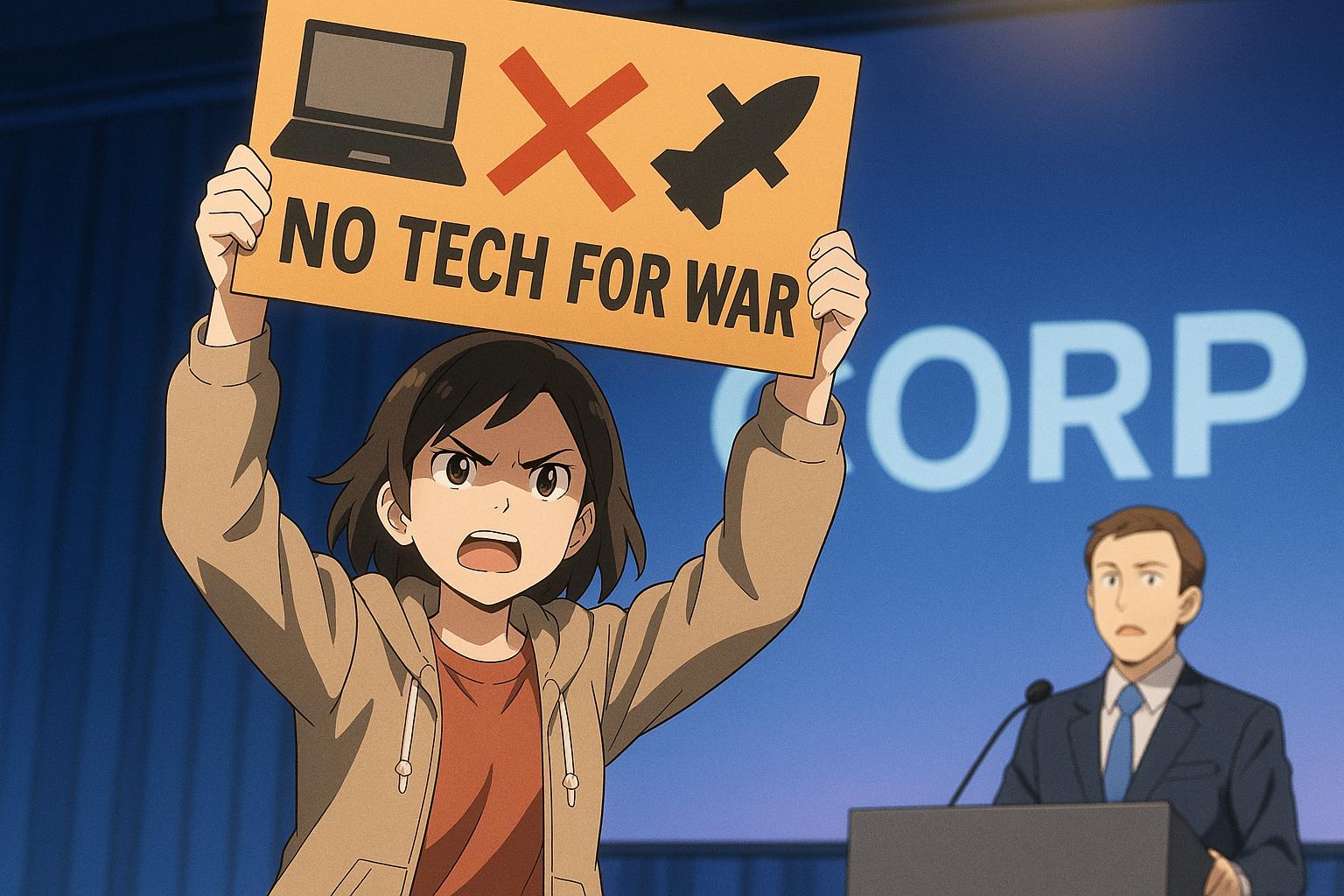A Microsoft employee’s unexpected protest during the company’s annual developer conference has brought attention to the contentious issue of corporate complicity in international conflicts. Joe Lopez, a firmware engineer, disrupted CEO Satya Nadella’s keynote speech with an impassioned outburst, accusing the tech giant of facilitating Israeli military operations through its cloud-computing platform, Azure. Lopez’s bold act of dissent comes amidst increasing scrutiny of Microsoft’s partnerships with the Israeli military, particularly in relation to the ongoing conflict in Gaza.
Lopez was swiftly escorted from the event after he yelled, "Satya, how about you show how Microsoft is killing Palestinians?" He later followed up with an all-staff email outlining his rationale for the protest. He emphasised the responsibility of Microsoft, one of the world's largest tech companies, to advocate for an end to violence against Palestinians. In his message, he asserted that, "The world has already woken up to our complicity and is turning against us," warning that public discontent could lead to boycotts and reputational damage.
His actions took place alongside those of a worker-led group known as No Azure for Apartheid (Noaa), which has been protesting Microsoft's involvement with the Israeli military for over a year. The group claims that Microsoft's Azure cloud services have been instrumental in enabling Israeli surveillance operations and were reportedly used by the Israeli air force to manage target databases for airstrikes. Such revelations have significantly intensified scrutiny of the ethical implications surrounding commercial technology in warfare, particularly as leaked documents reveal a substantial increase in Microsoft’s contracts with the Israeli Defence Forces in the wake of military escalations.
This type of internal dissent is not unprecedented at Microsoft. Just weeks prior to Lopez's demonstration, employees Ibtihal Aboussad and Vaniya Agrawal were similarly dismissed after protesting at an event featuring the company’s AI chief, Mustafa Suleyman. The recent uproar within Microsoft echoes broader patterns seen in other tech firms, where employees have voiced objections to the ethical ramifications of their companies' contracts with military organisations. For instance, last year, Google faced significant backlash and internal protests over its own ties to Israel.
In response to the uproar, Microsoft has maintained that a third-party investigation found no evidence suggesting its technology facilitates harm. However, many activists and critics, including Lopez, dispute this claim, asserting that visual evidence and accounts of military actions conducted using Microsoft’s technology speak volumes. Lopez underscored this sentiment in his all-staff email, reiterating that the reality of the situation is evident daily through news reports and social media.
The backdrop of Lopez's protest is the recent commemoration of the Nakba, a term signifying the mass displacement of Palestinians in 1948. This timing has added a profound layer of urgency and emotional weight to the protest, highlighting the enduring impact of historical injustices on contemporary geopolitical dynamics.
As the landscape of technology and warfare continues to evolve, with firms like Microsoft providing advanced AI and cloud solutions to military entities, the ethical considerations surrounding these relationships are likely to provoke ongoing debate and dissent from within. Lopez’s protest sends a clear message that a segment of the workforce is willing to voice opposition against practices they perceive as contributing to humanitarian crises, underscoring a growing demand for corporate accountability in matters of global importance.
Reference Map
- Paragraph 1: [1], [2]
- Paragraph 2: [1], [4]
- Paragraph 3: [1], [6], [7]
- Paragraph 4: [5], [6]
- Paragraph 5: [1], [3], [4]
- Paragraph 6: [1], [5]
- Paragraph 7: [1], [3], [4]
Source: Noah Wire Services
